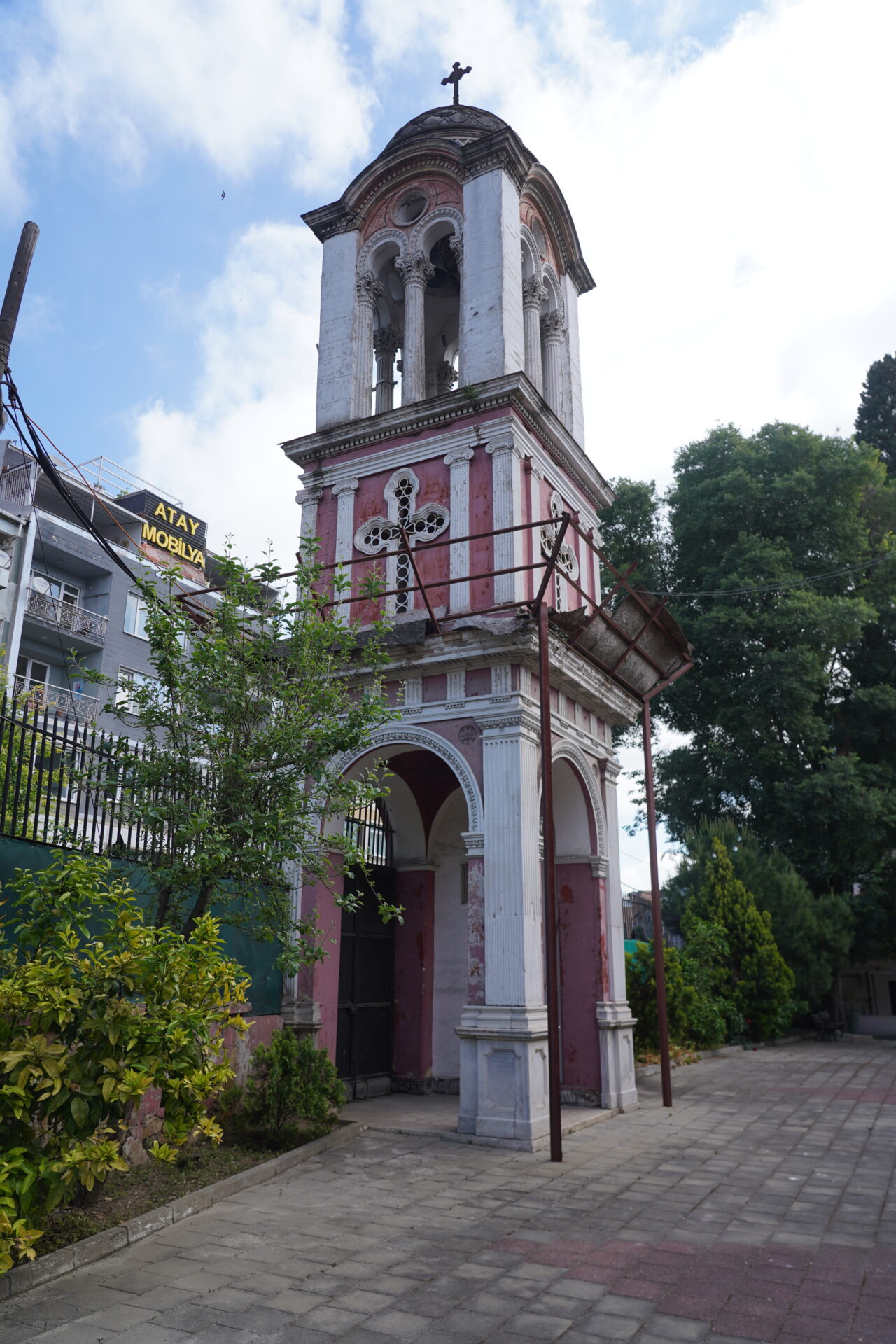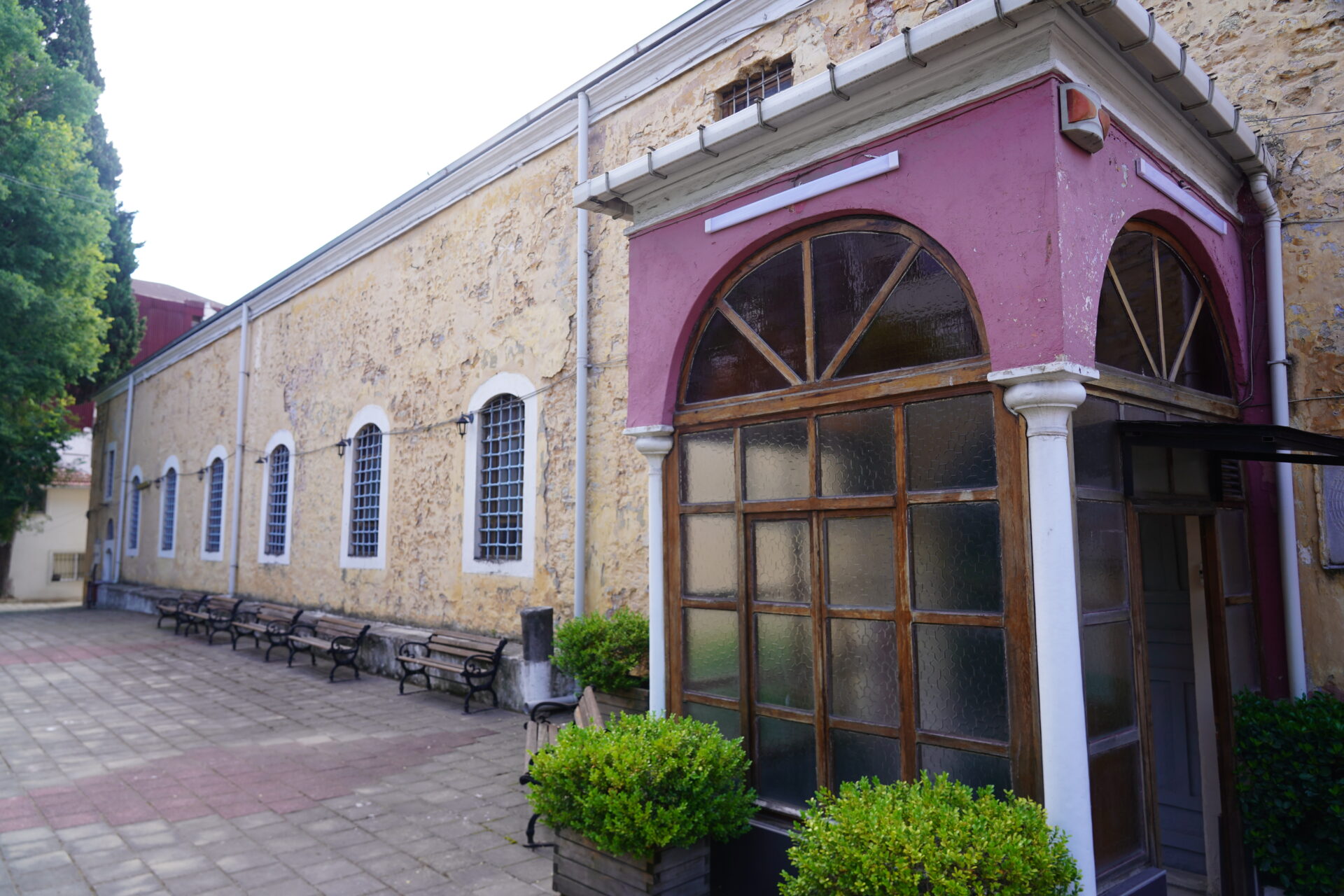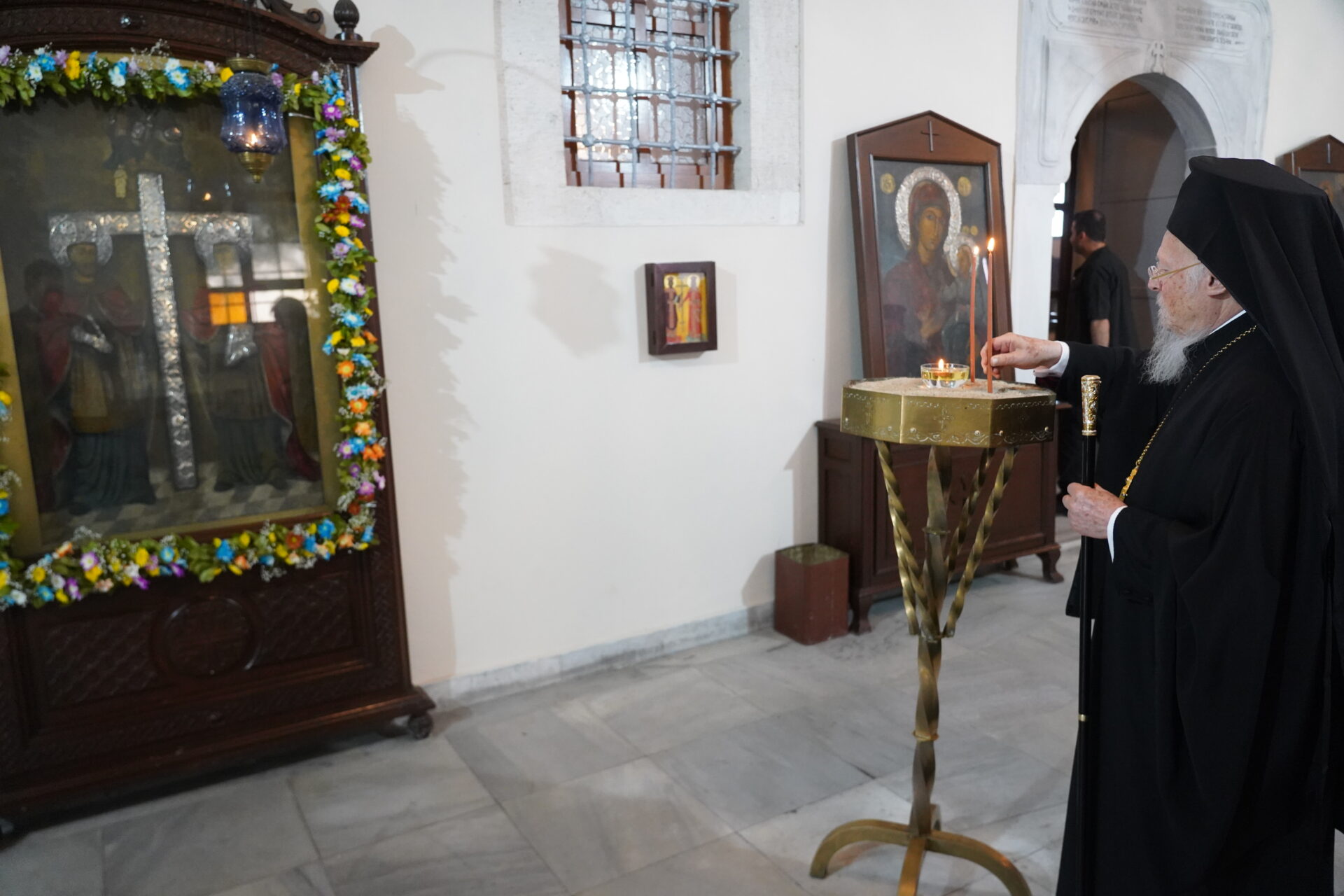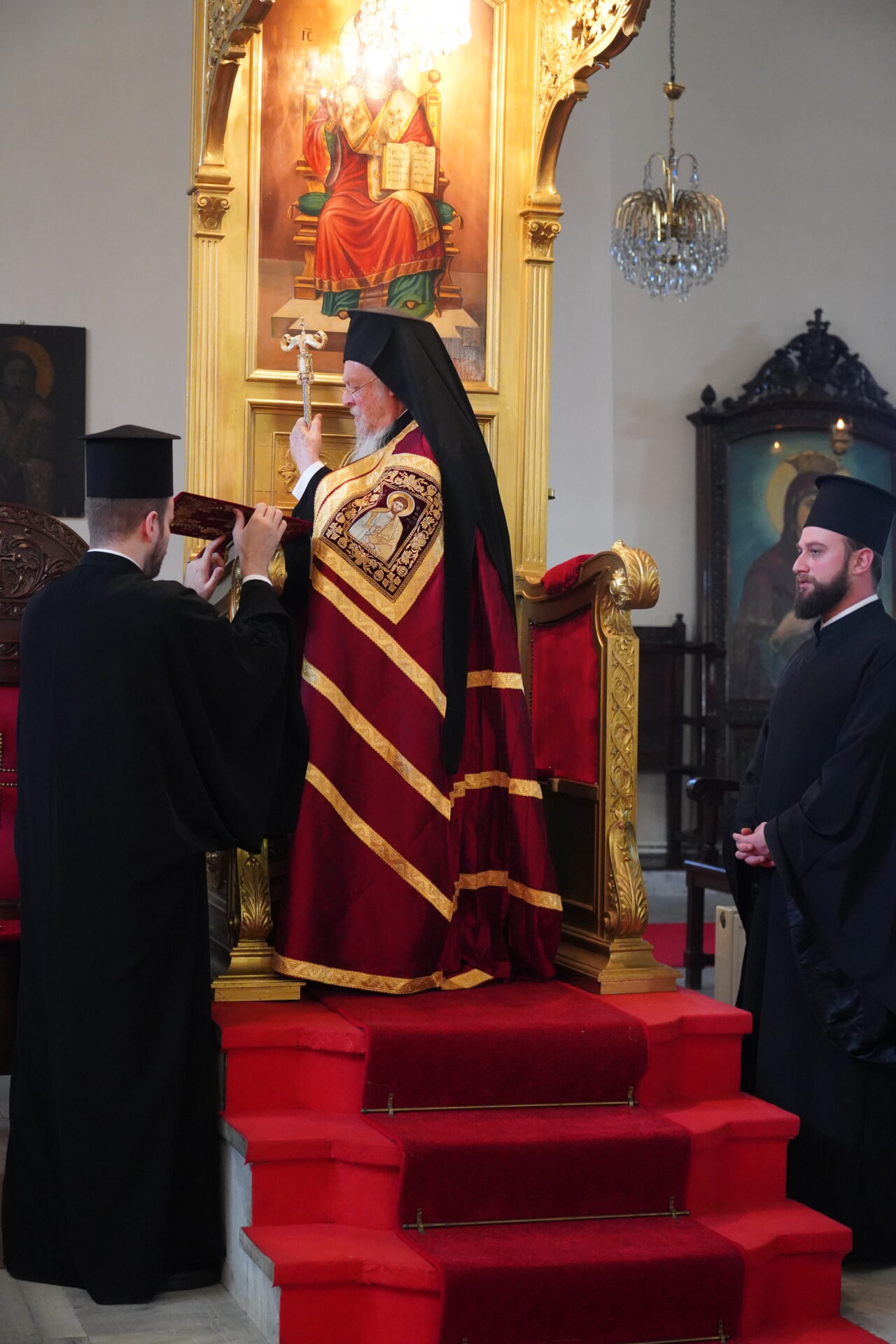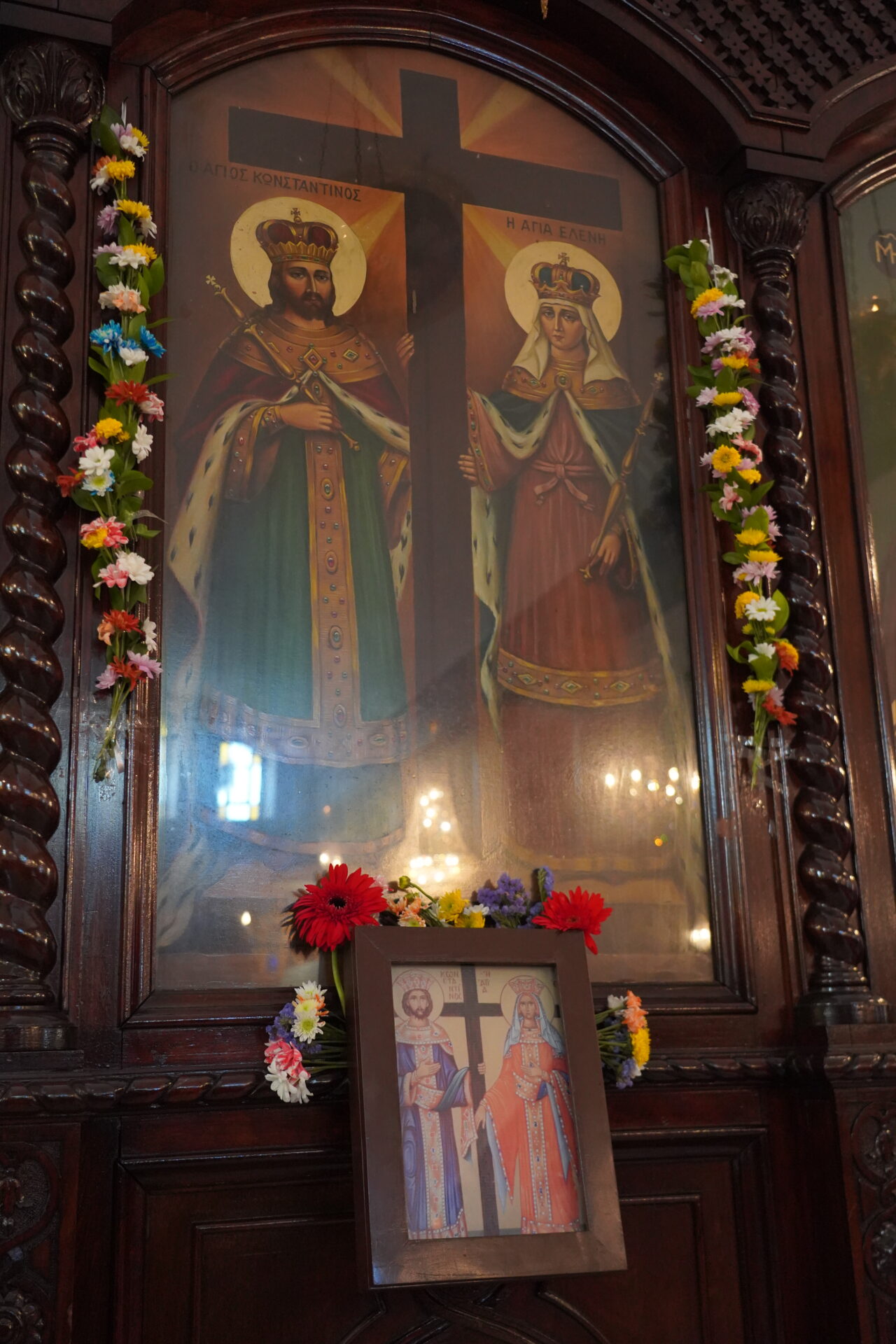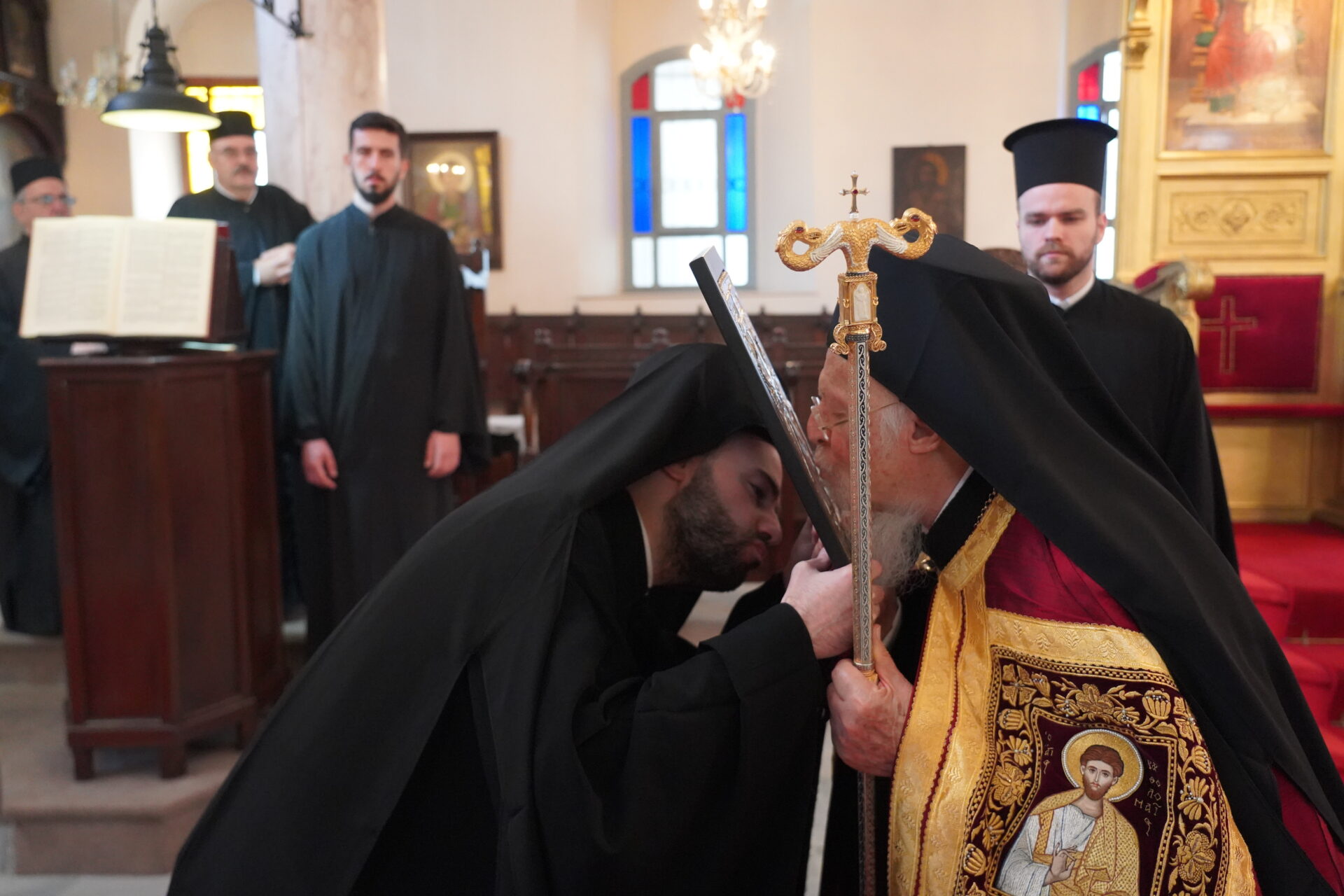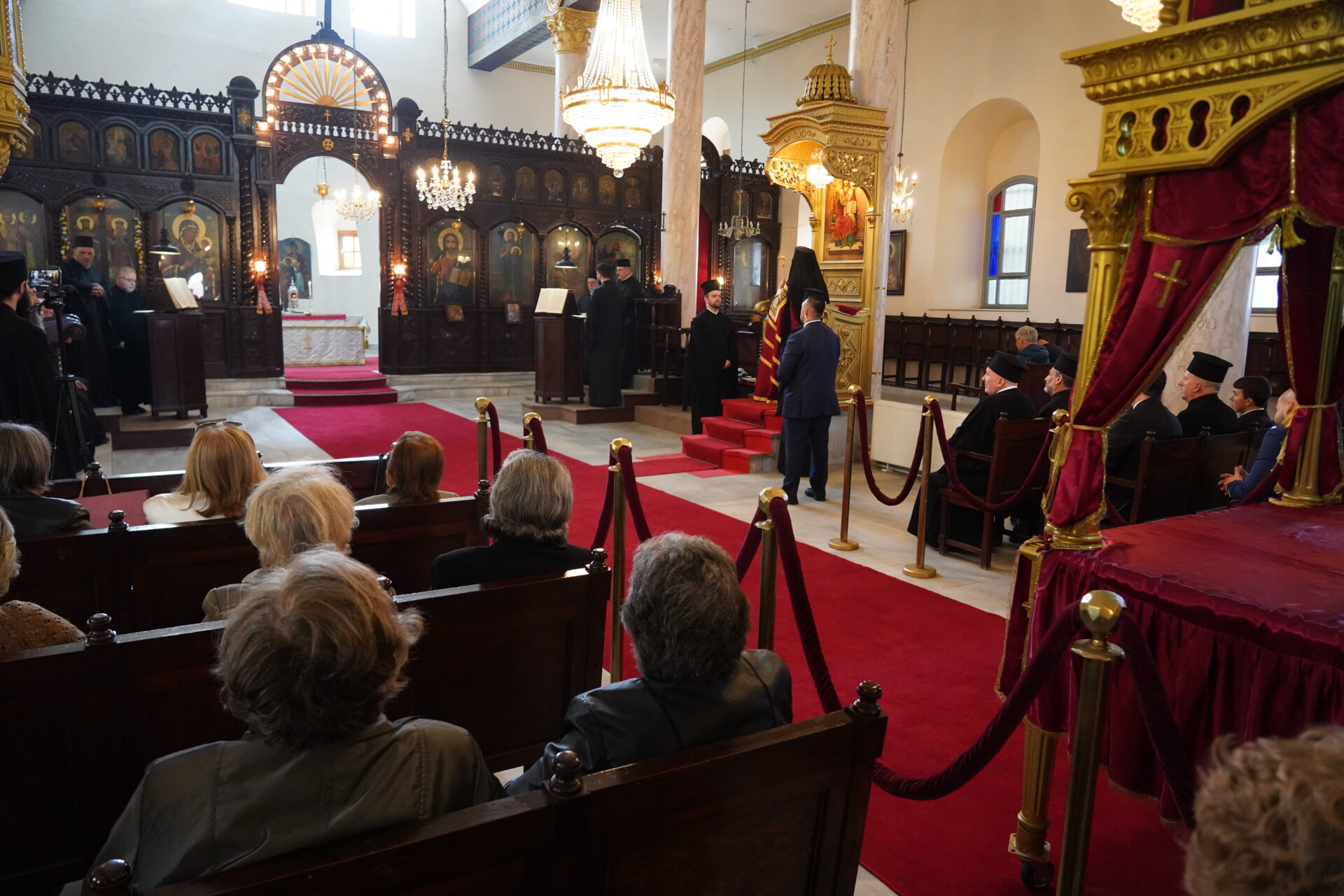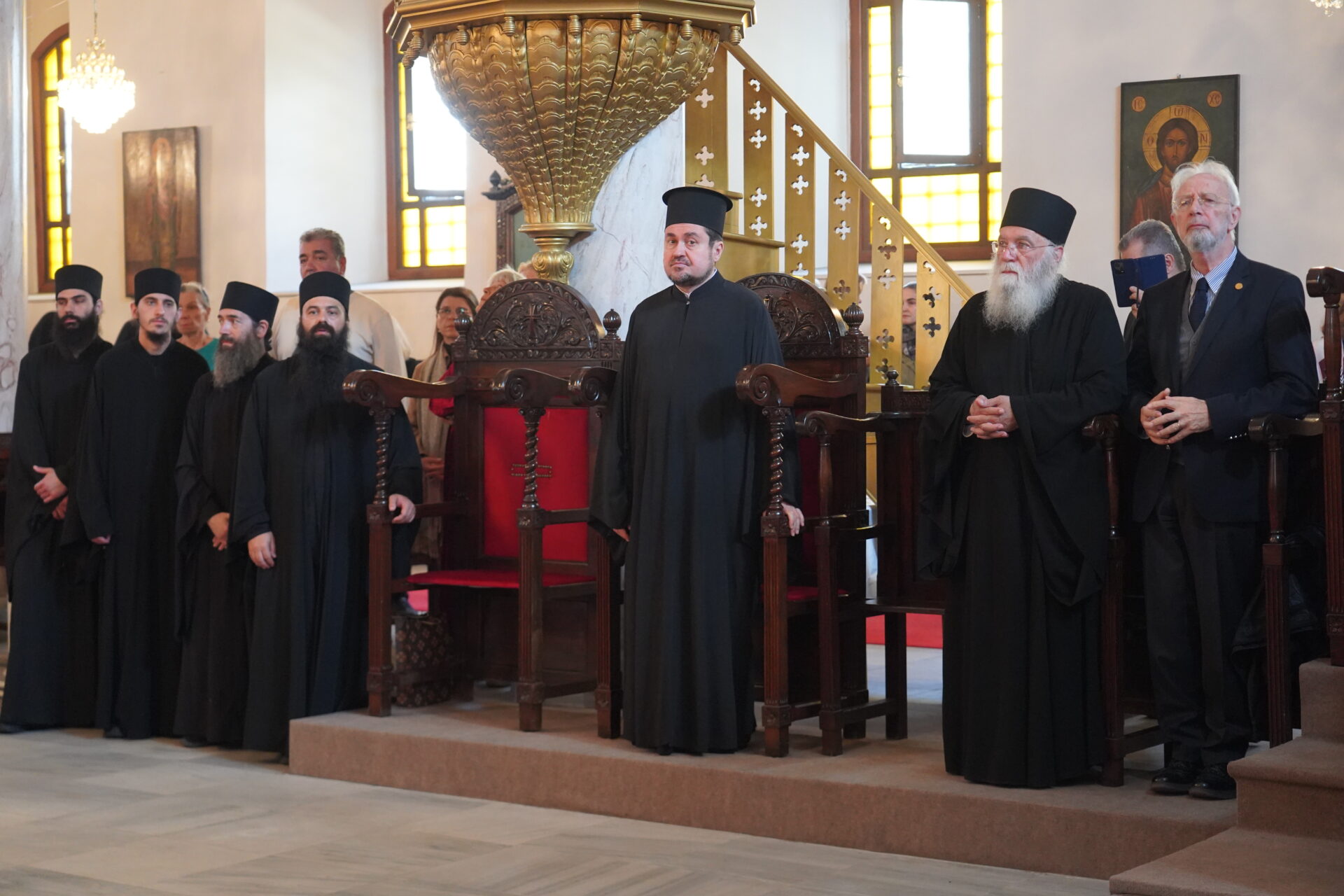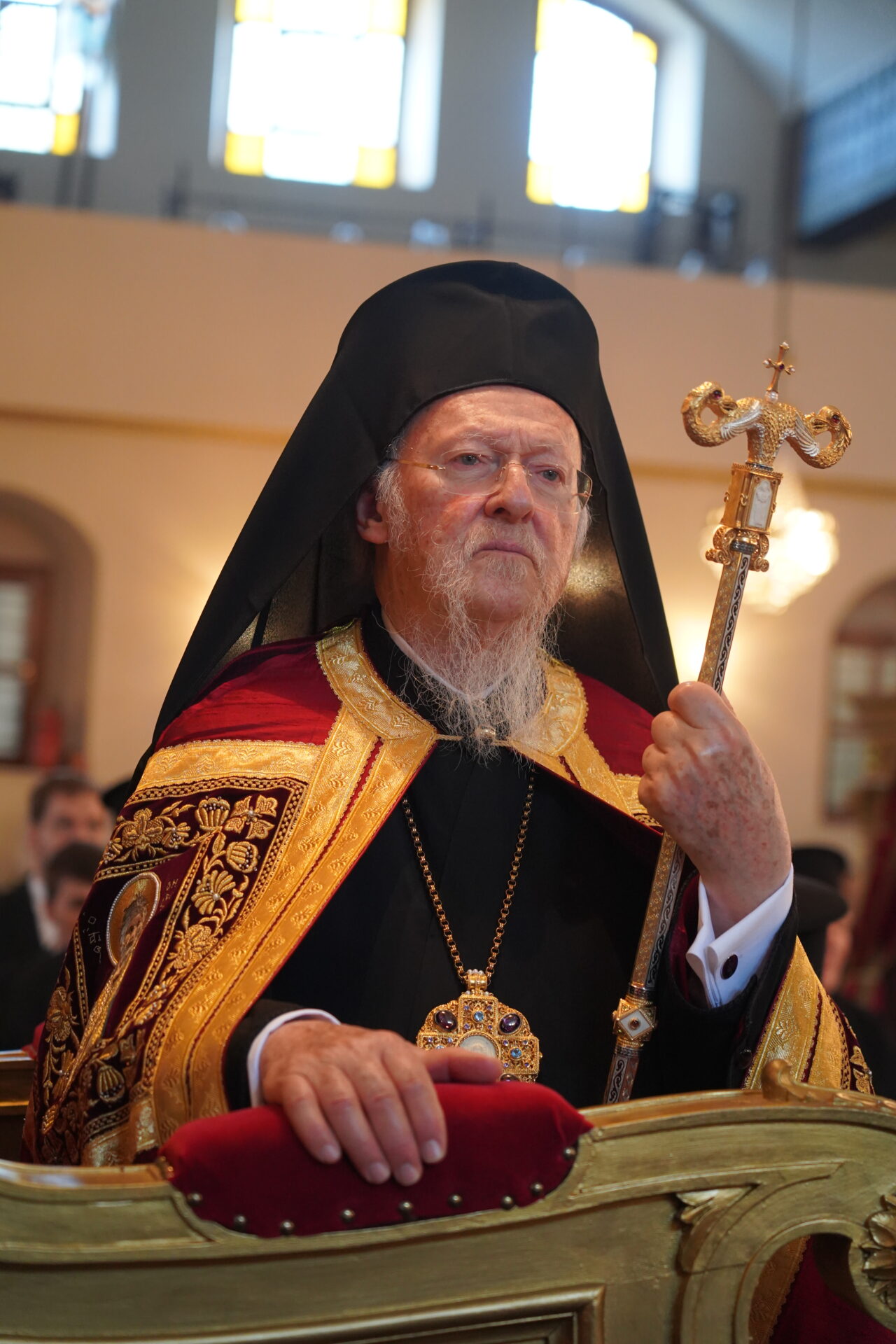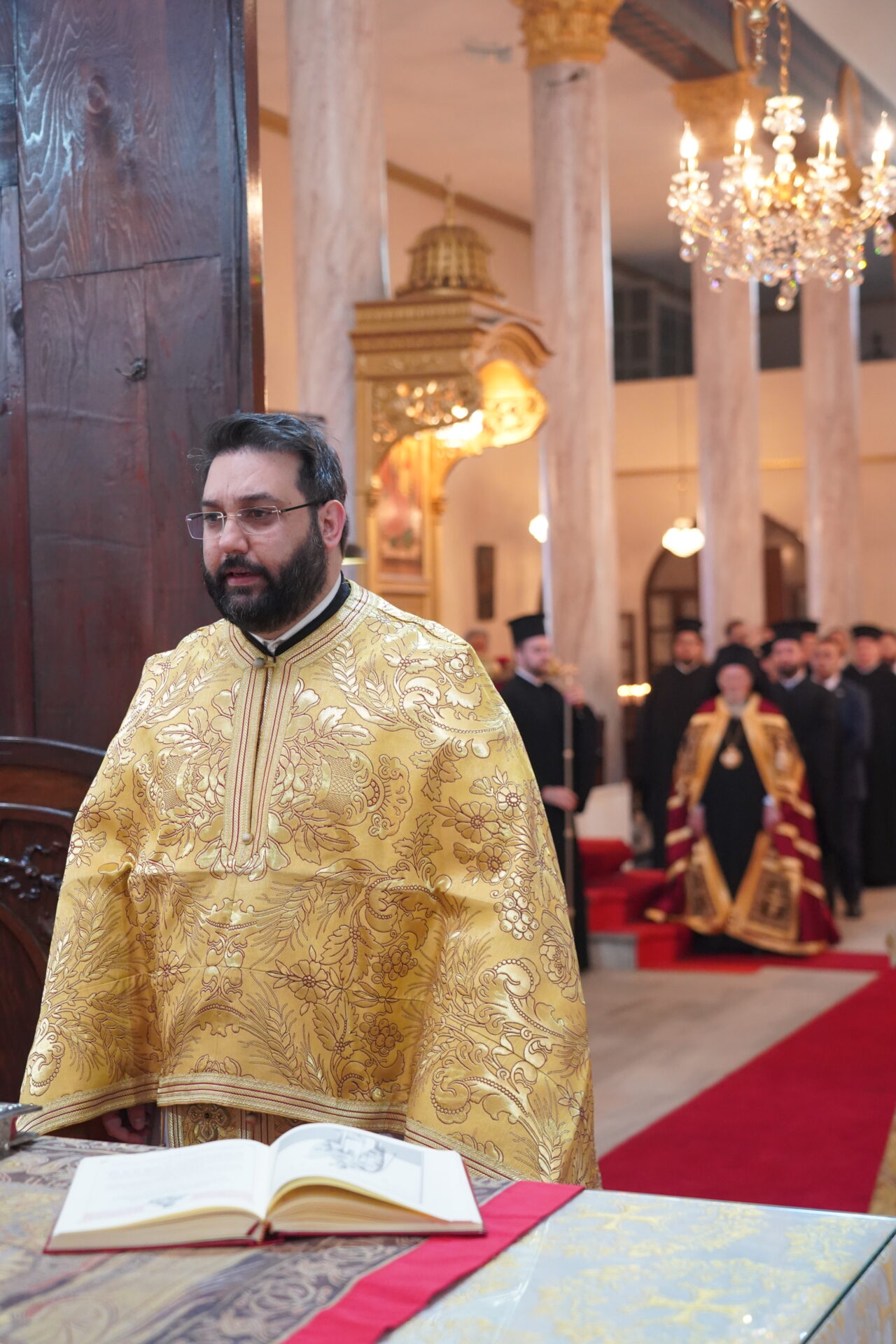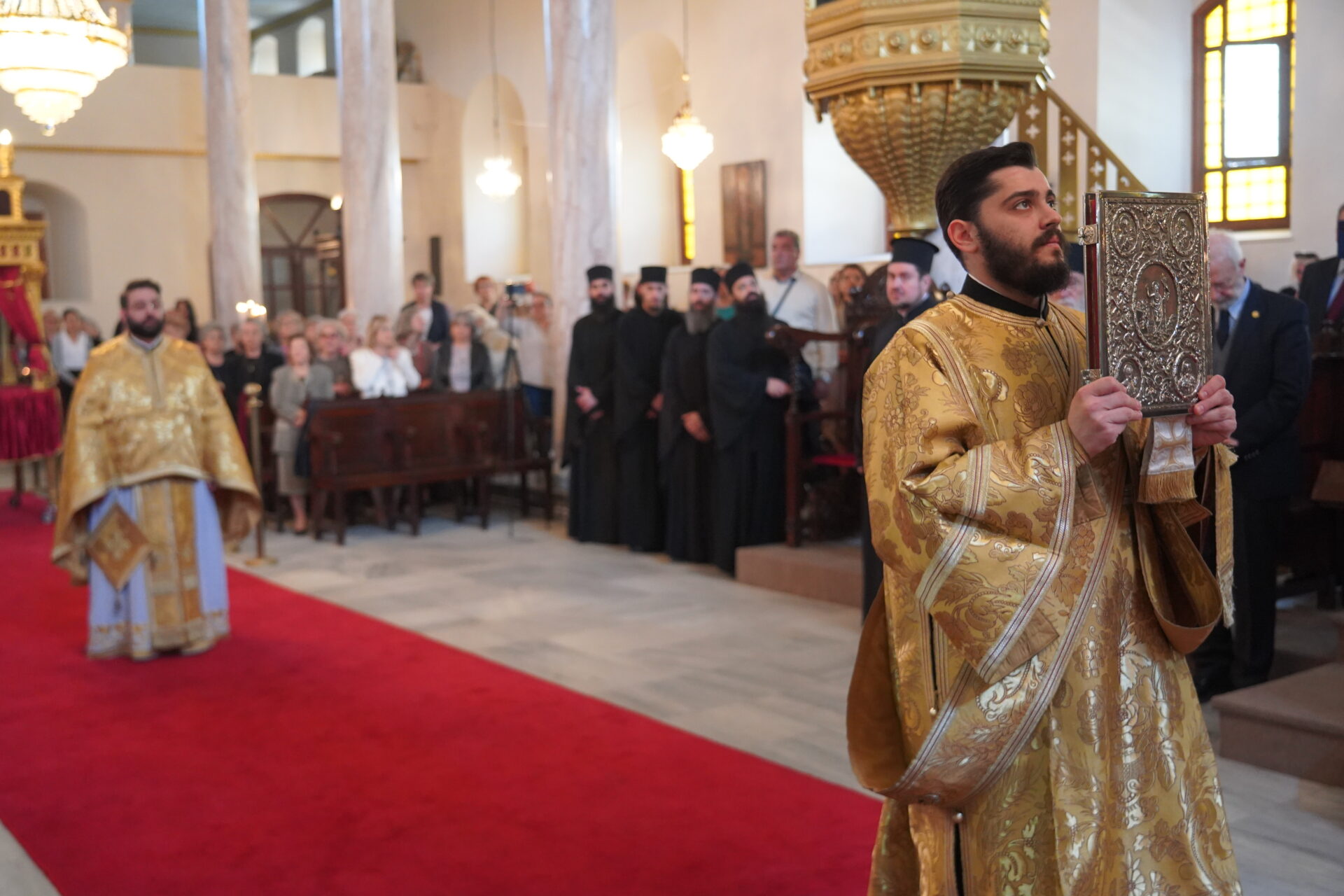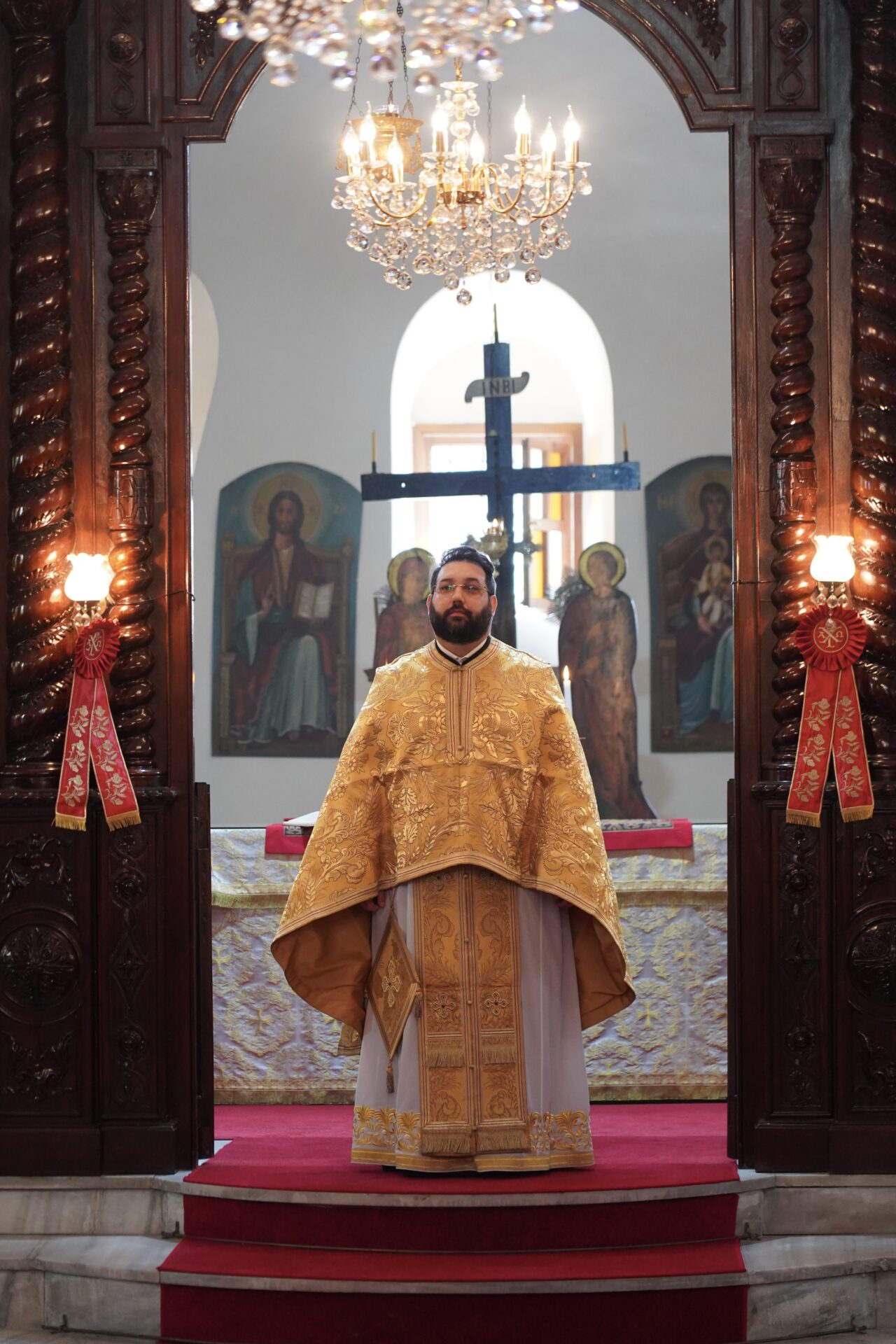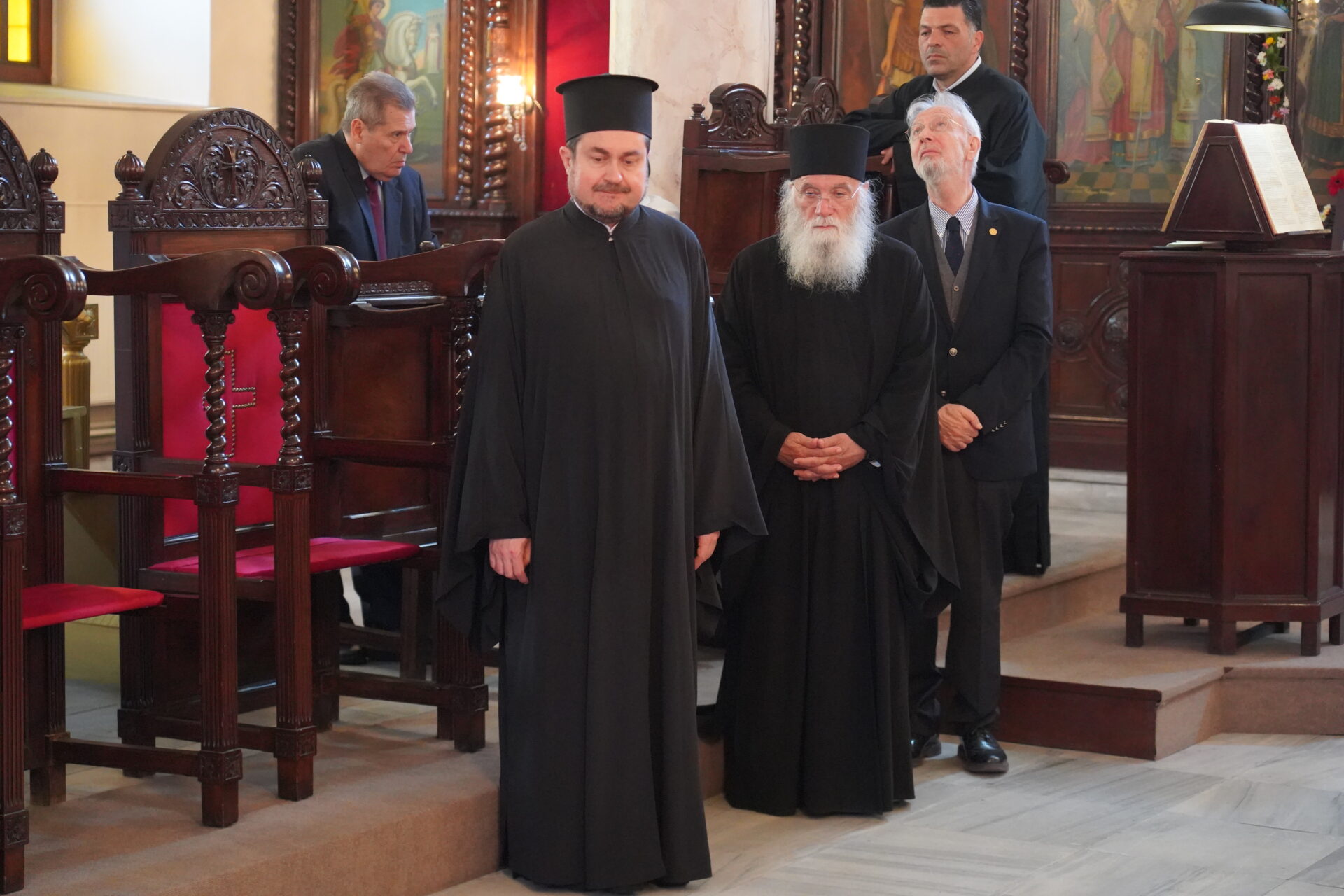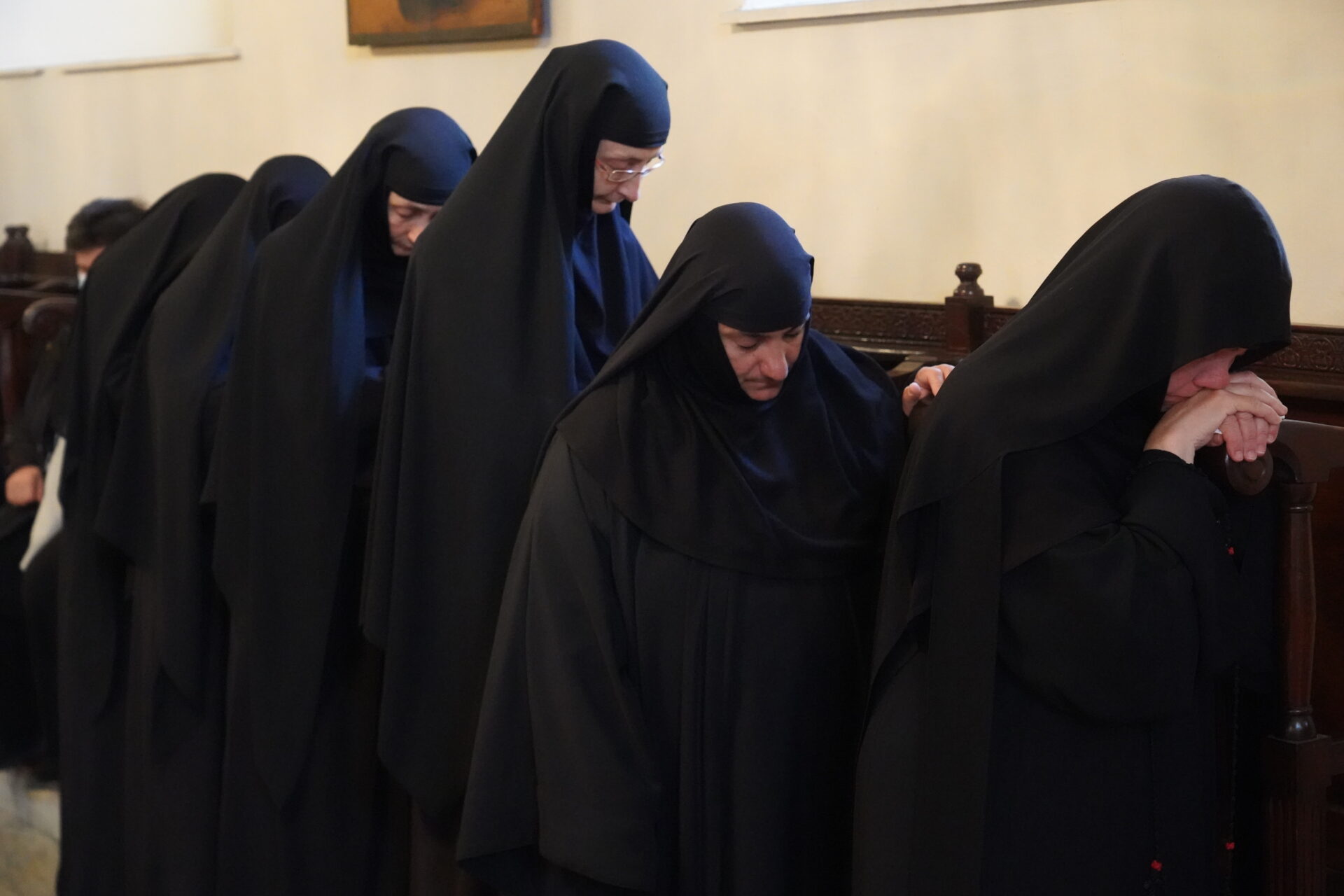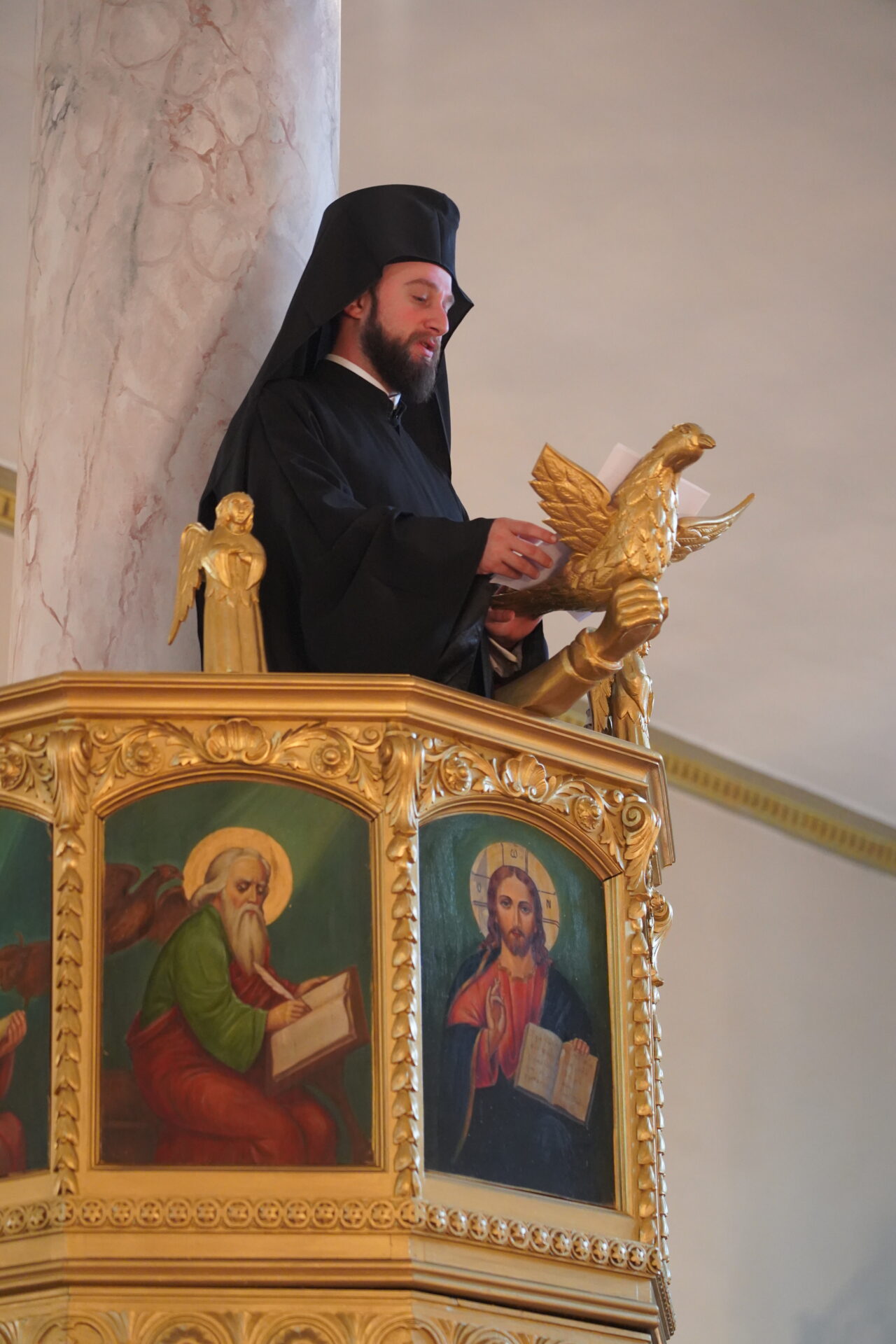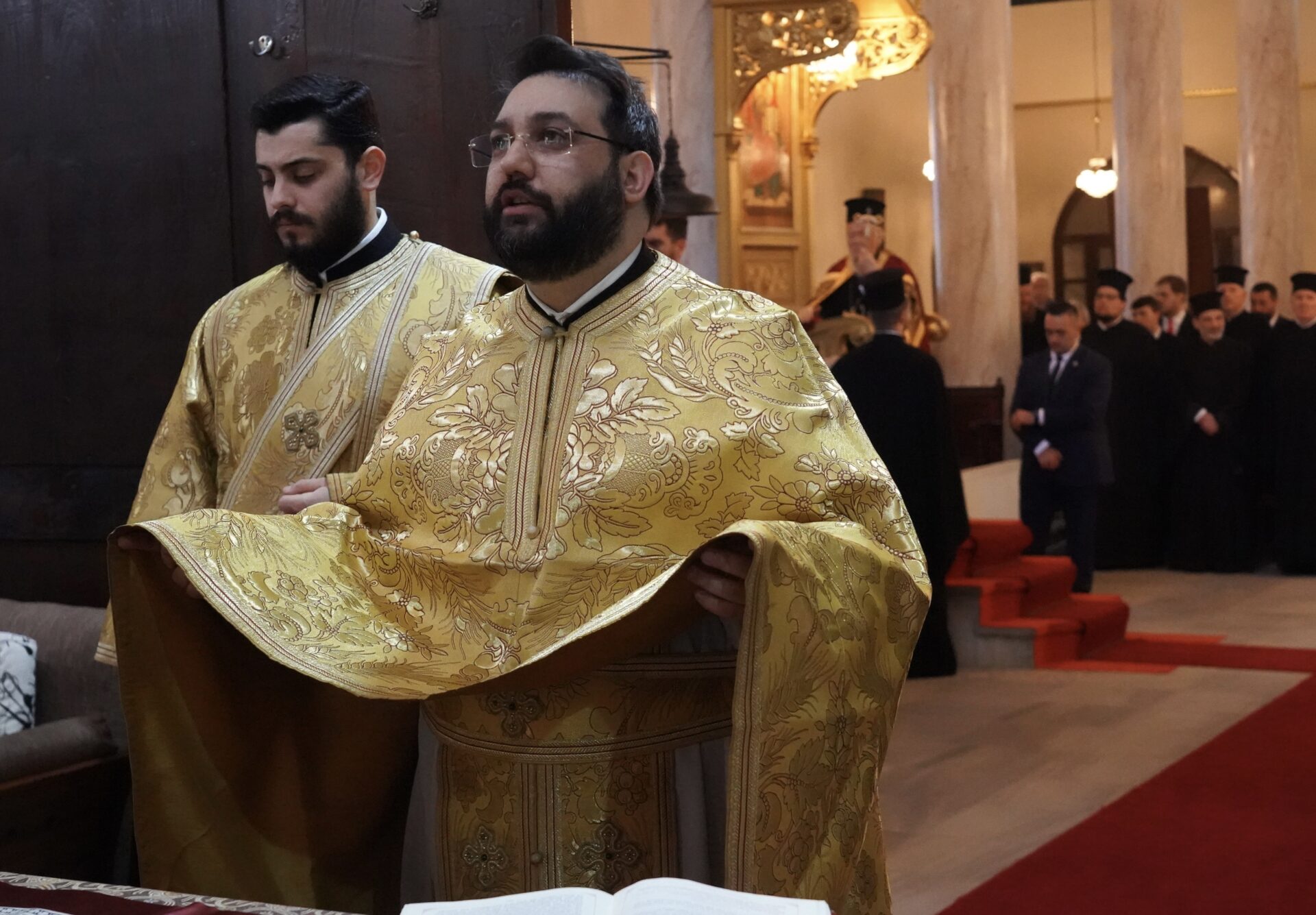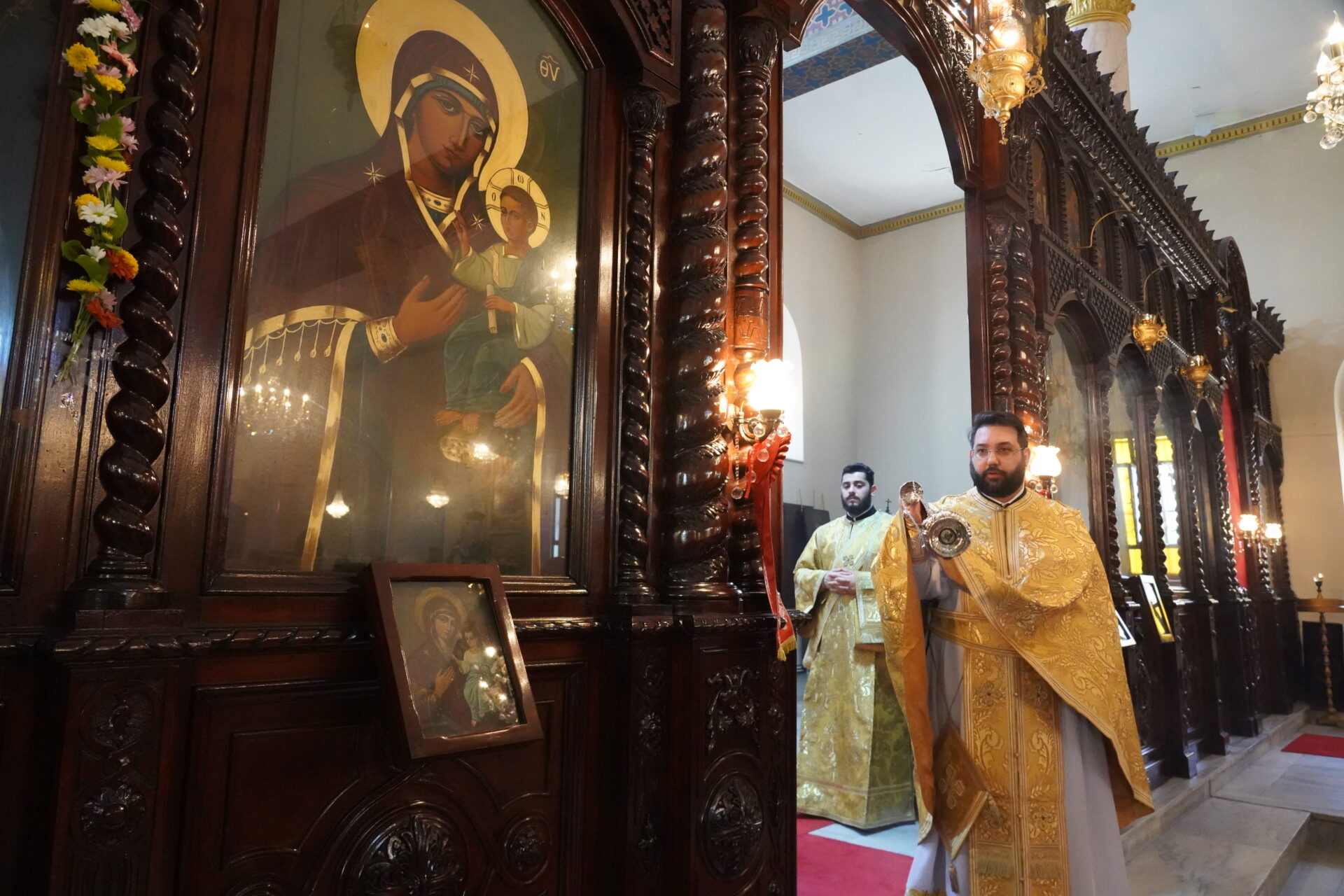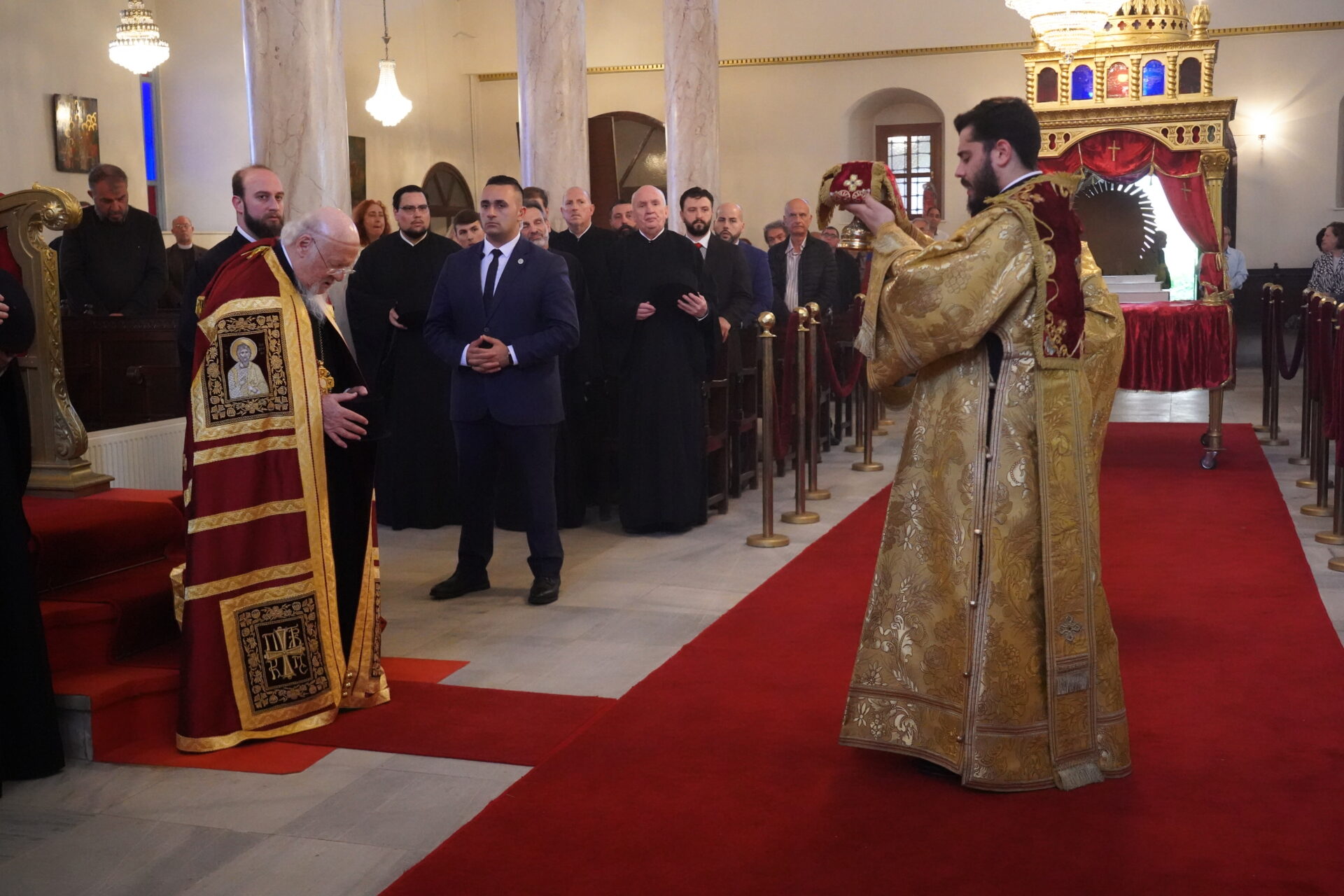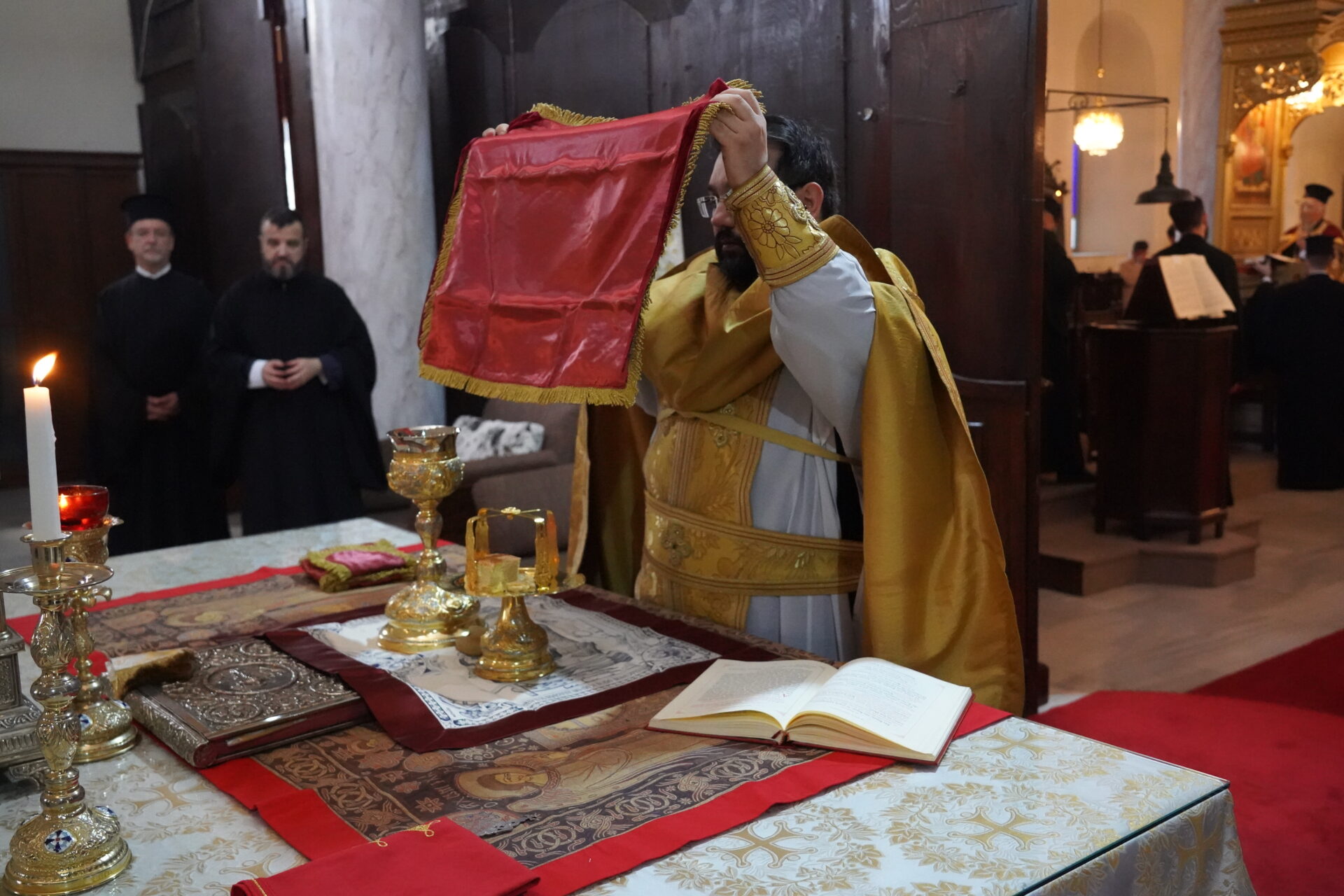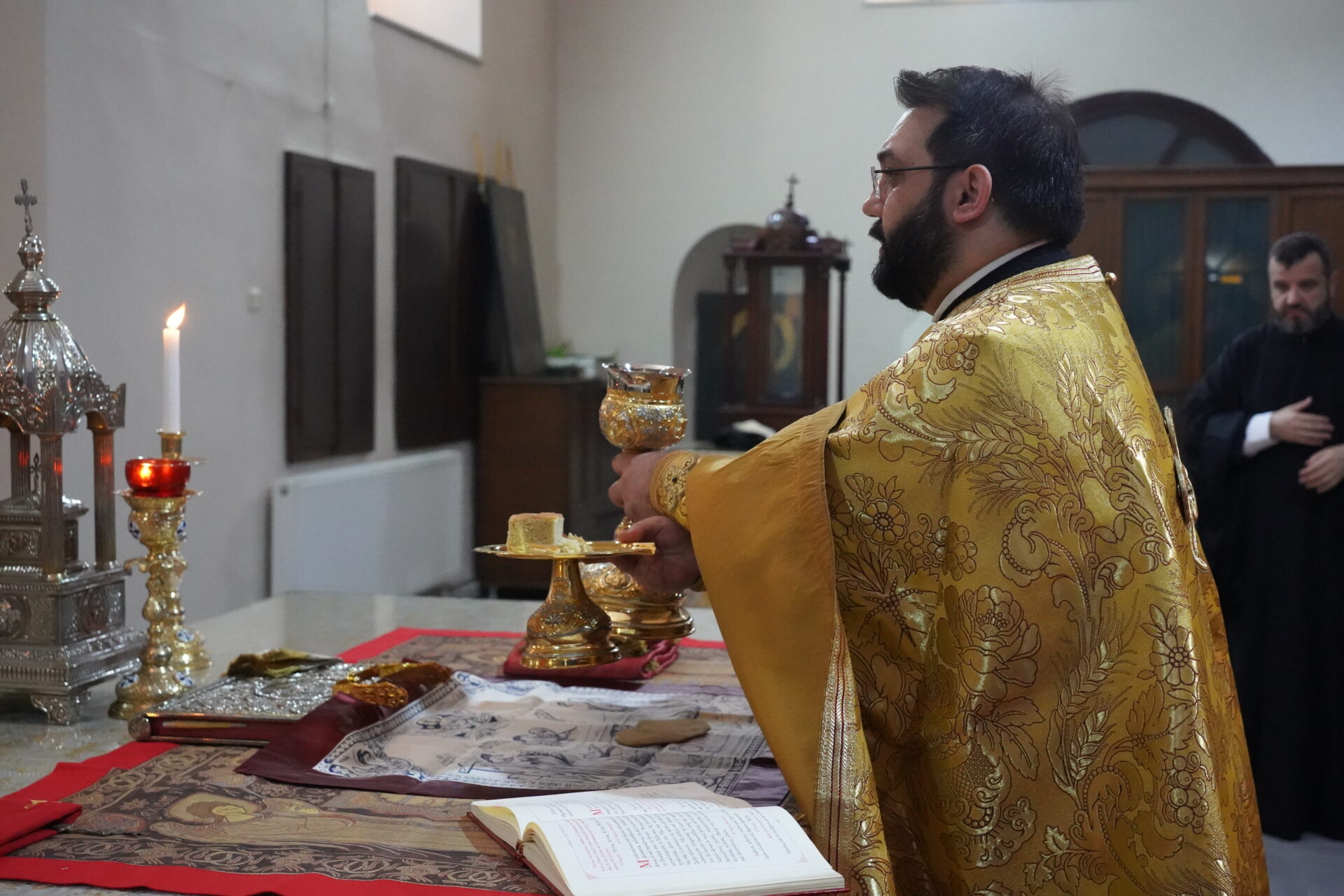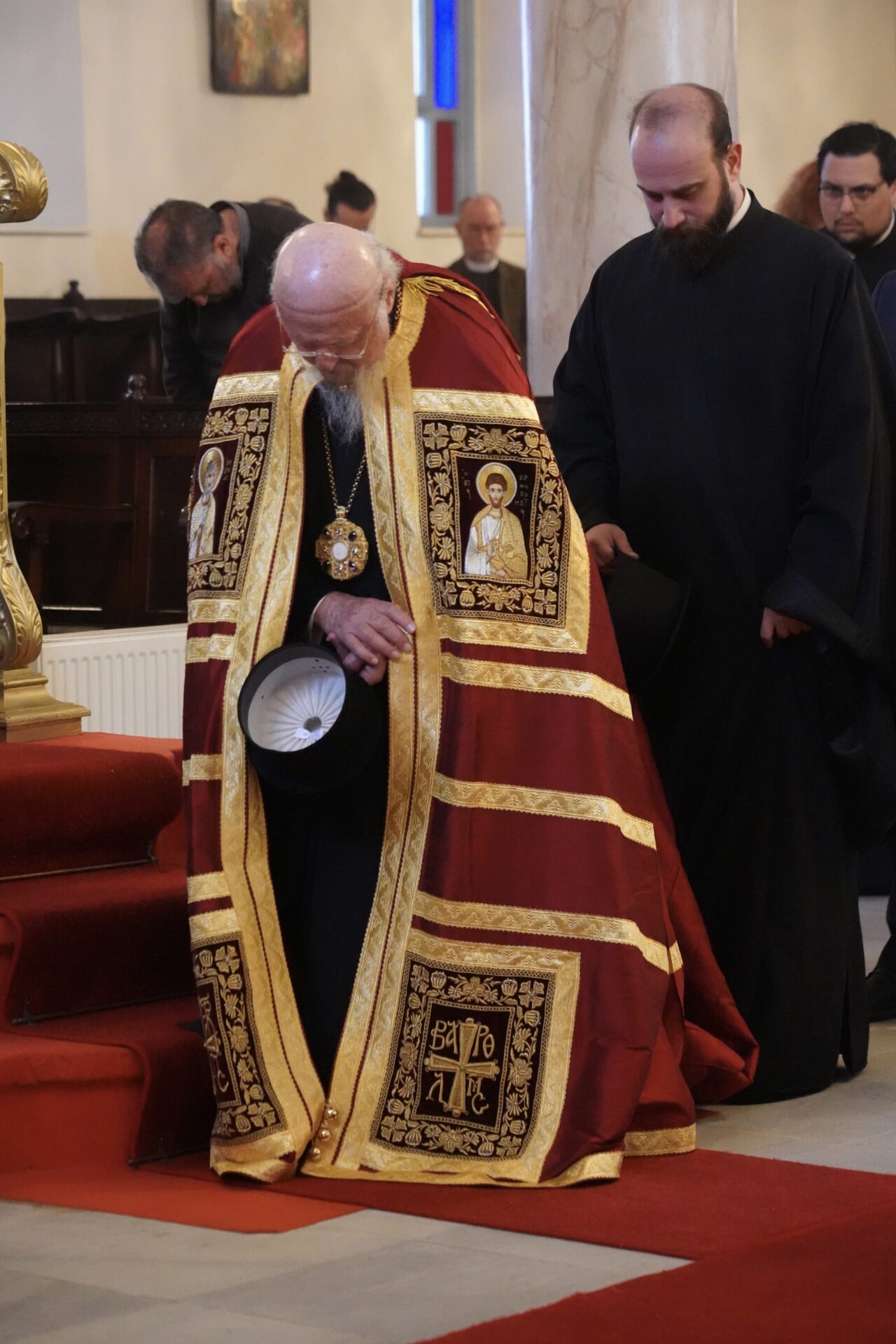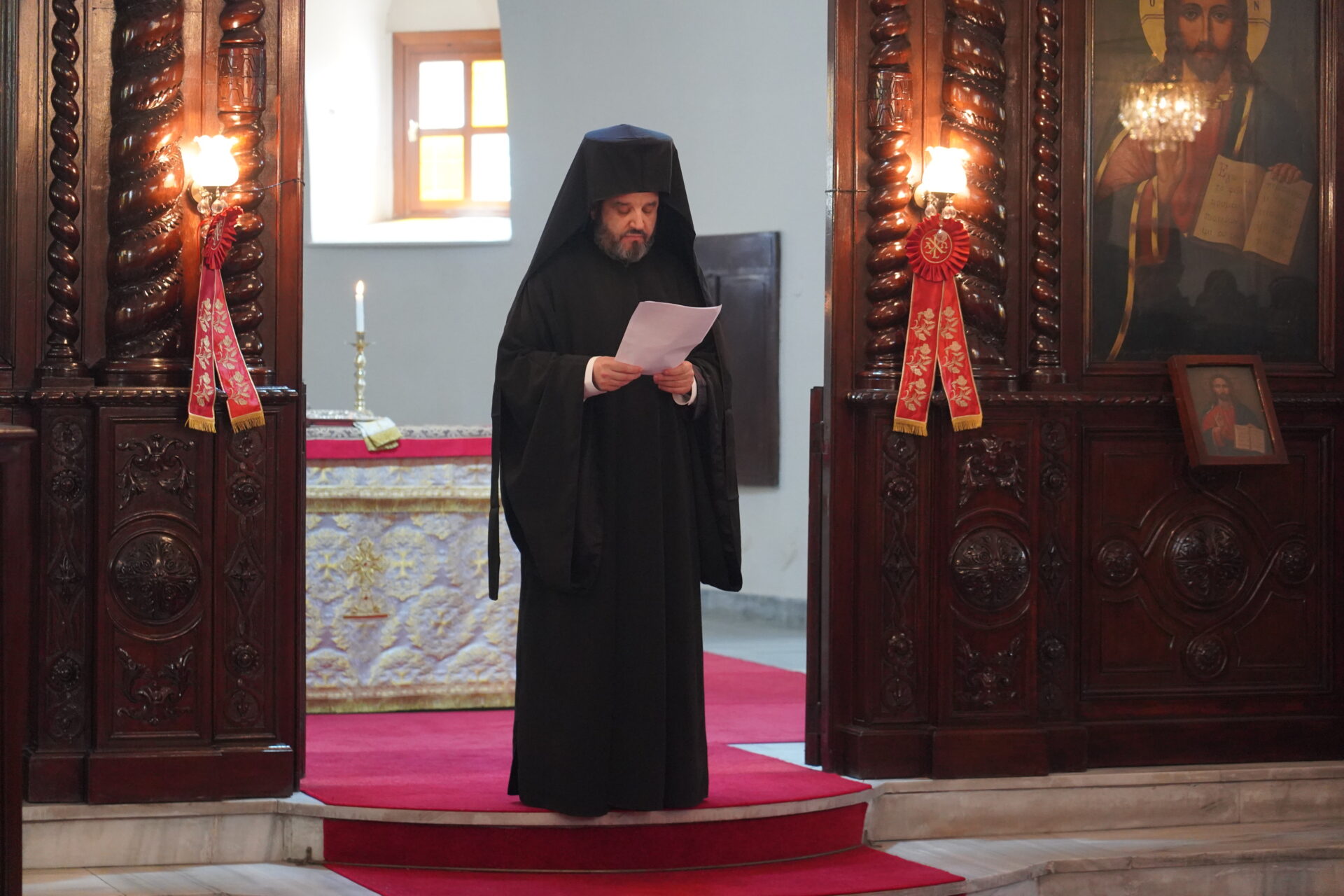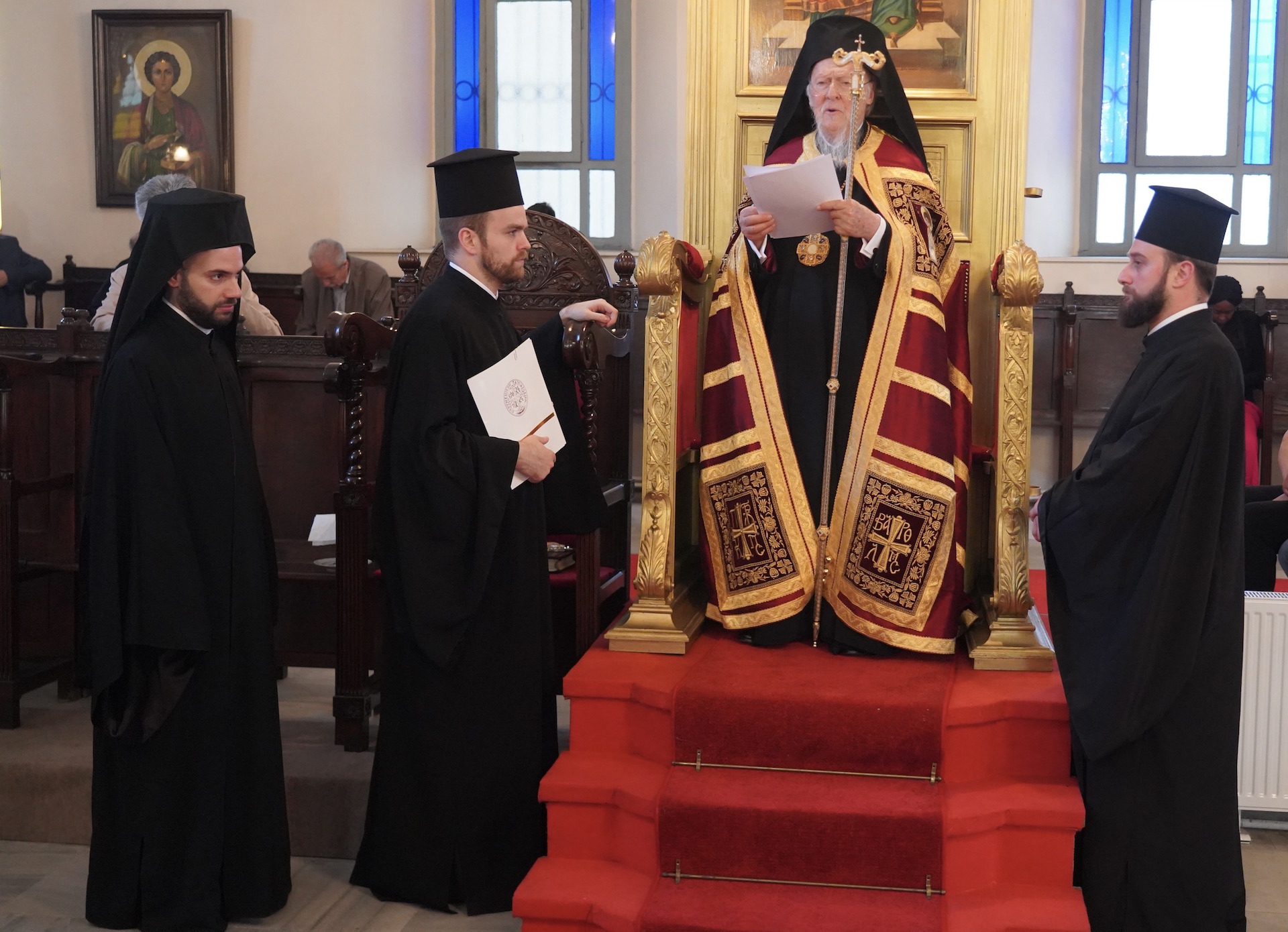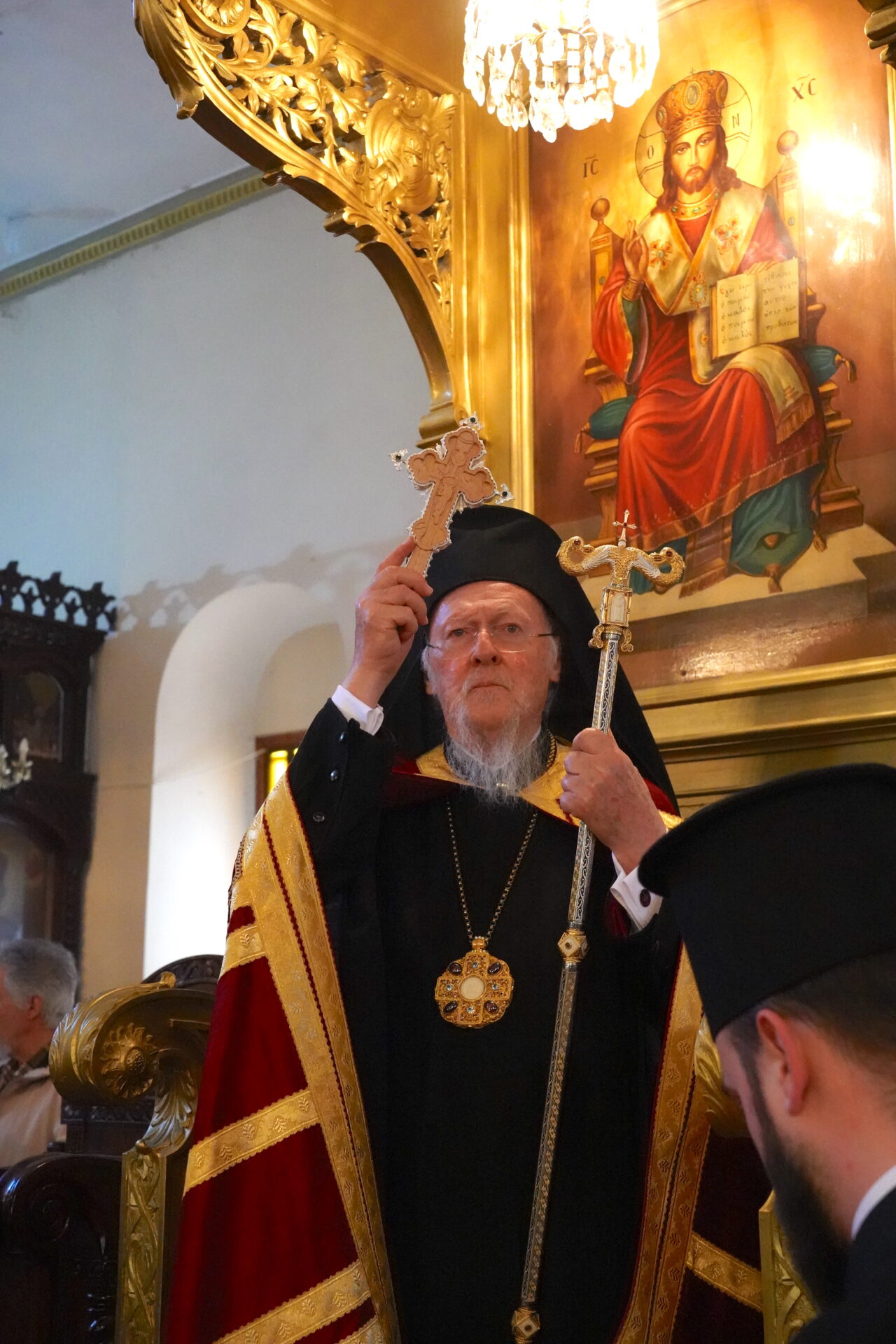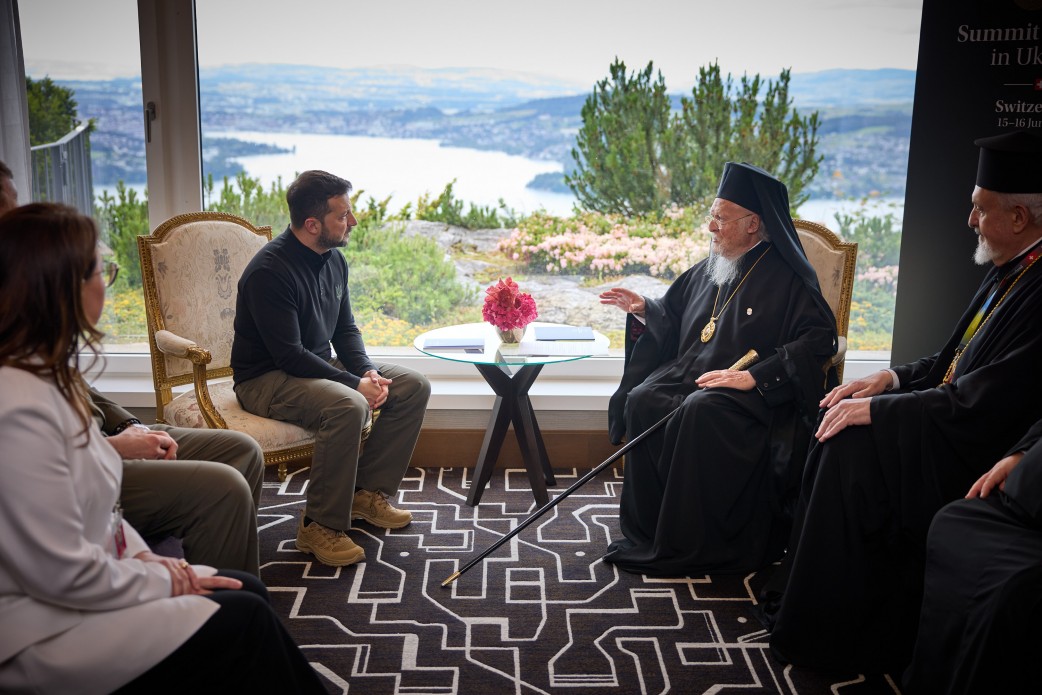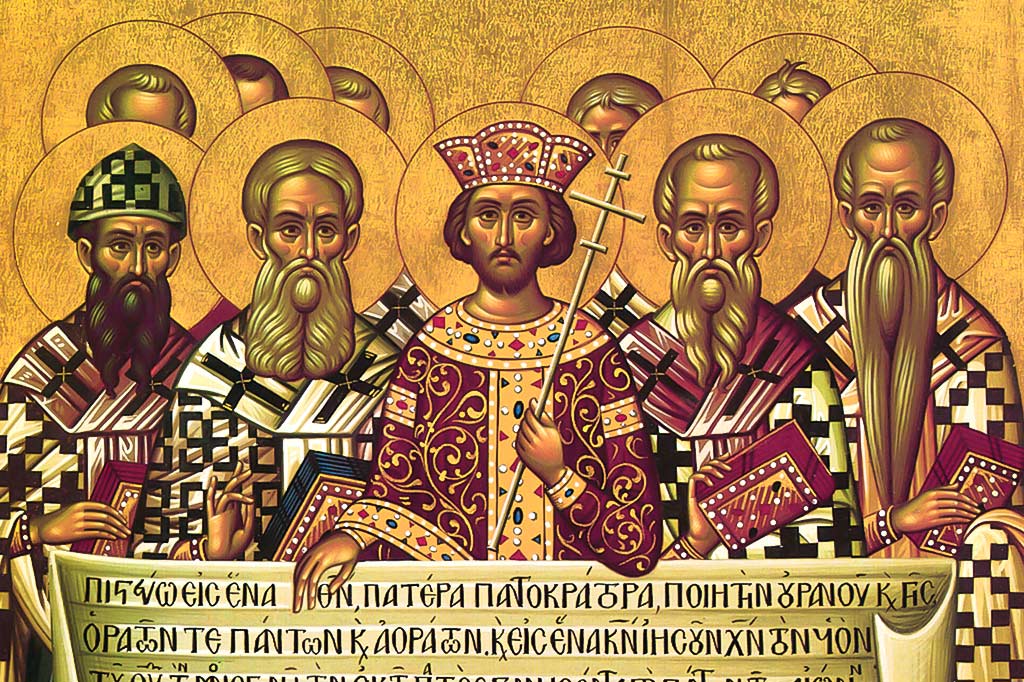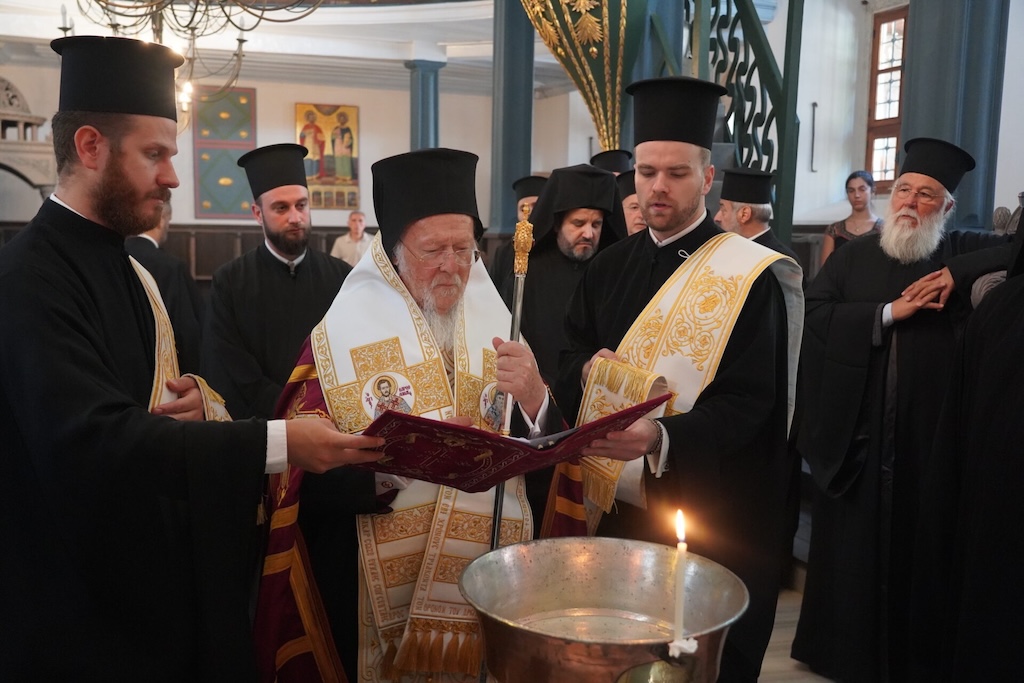Ecumenical Patriarch Bartholomew: “The Church needs internal, spiritual freedom”
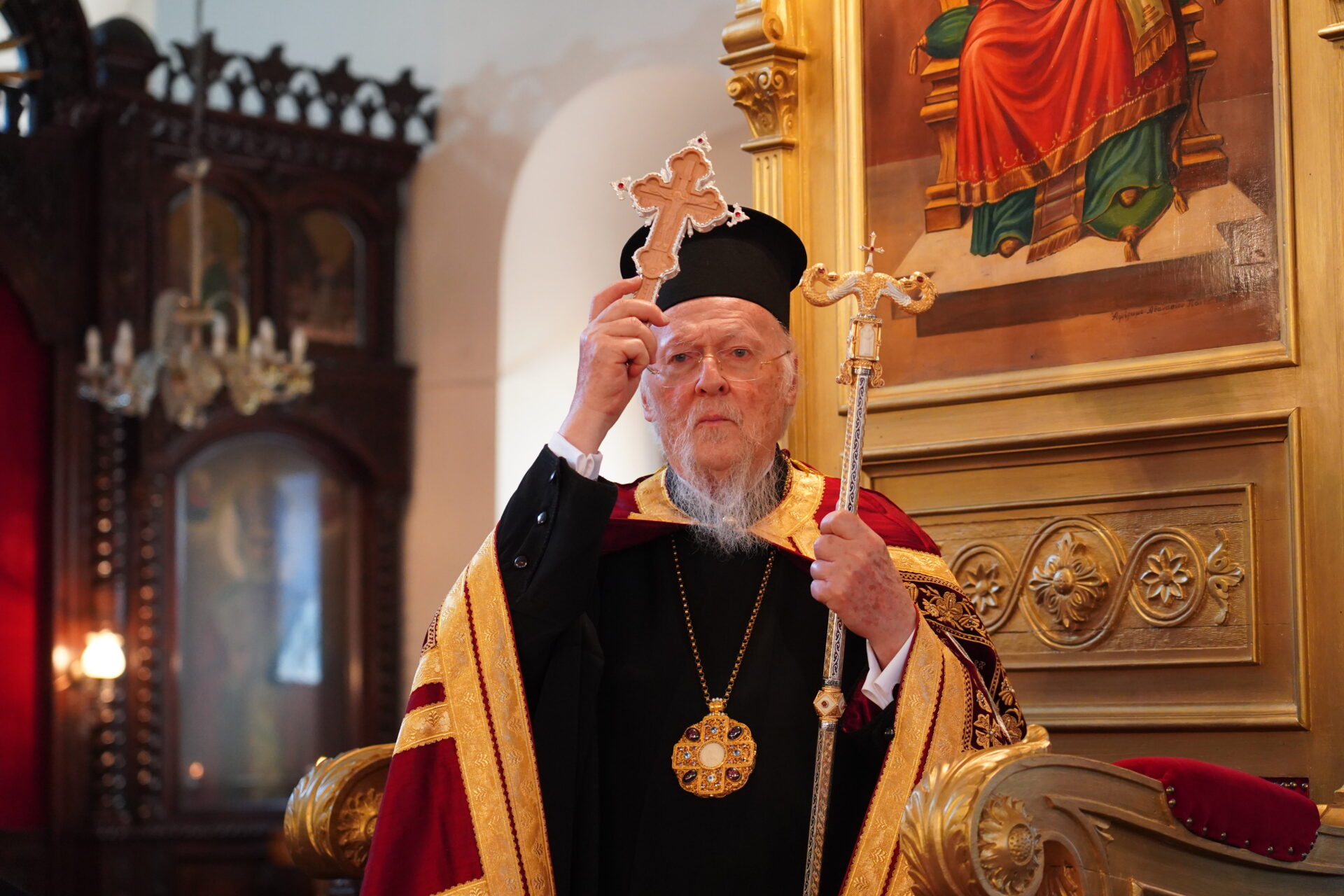

On the occasion of the feast of the memory of Saints Constantine and Helen, His All-Holiness Ecumenical Patriarch Bartholomew presided over the Divine Liturgy at the namesake Church in the Hypsomatheia District on Tuesday, 21 May 2024.
The Holy Sermon was preached by the Patriarchal Deacon Father Barnabas.
The Ecumenical Patriarch was warmly welcomed by His Eminence Metropolitan Maximos of Selyvria.
Also present for the feast day were His Grace Bishop Hilarion of Winnipeg, Archimandrite Nektarios Moulatsiotis, Protosyncellus of the Metropolis of Fokida, Abbot of the monastery of St. Augustine of Hippo and Seraphim of Sarov in Trikorfos, Fokida, with members of his Brotherhood and a group of pilgrims, Protopresbyter Eugenios Pentiuc, Dean of the Boston School of Theology of the Holy Cross, with a group of professors and students, the Nun Monica, Abbess of the Monastery of St. Nektarios of Trikorfos in Fokida, with members of her sisterhood, Michael Hatzigiannis, Director of the Hellenic Bible Society, who lead a group of professors and postgraduate students, faithful believers from the wider area of the Hypsomatheia District and pilgrims from abroad.
In his address, the Ecumenical Patriarch highlighted the important contribution of the Holy Apostles Constantine and Helen to Christianity and the Church.


“Sts. Constantine and Helen were the first to give Christianity and freedom to the Church because they believed in the indomitable power of Jesus and His Gospel. The cross that Constantine the Great saw in heaven as a symbol of victory is the same cross that his Holy Mother Helen took out of the catacombs and raised and erected in glorious churches. For this reason, Christianity owes much to both.
This treasure and the legacy of glory they have bequeathed to us is an honour, but also a responsibility. Certainly, the privileges granted by Constantine the Great gave Christians the peace and security to exercise their duties of worship. At the same time, however, they also allowed the church to become a secular power, exploited by ambitious individuals who sought to use the benefits of these privileges to achieve ends alien to its saving and transforming mission. For ever since Christianity emerged from the catacombs, there have been times in its history when it seemed to lose its true glory and spiritual splendour.
And this story is repeated from time to time. And today the Church flourishes where it is persecuted. There are the martyrs. There is cheerfulness. There is sacrifice. There are the deeds that recall early Christian days. Whereas, where the Church is closely embraced by secular power, it often loses its way and its mission, as, unfortunately, is the case today with the Church of Russia. As a result, it is no longer a light and life and a source of sanctification for the people of God, but an agent of obscuring the truth, as a tool in the hands of an authoritarian and oppressive power, as it relies exclusively on the rulers of this world, “who have no salvation”. The Church needs internal, spiritual freedom, according to the words of the Apostle Paul.


The Patriarch then warmly welcomed all the pilgrims from abroad, especially those from Phocis, led by Archimandrite Nektarios Moulatsiotis, as well as the group of professors and students of the postgraduate program for the training of Bible translators of the Hellenic Bible Society, under the leadership of its Director General, Mr. Michael Hatzigiannis, and the professors and students from the Boston Theological School, noting the following:
“The Mother Church enveloped in the imperial purple robe of joy and power and the light of the divine Resurrection, welcomes you with deep love and honour. During the days of your stay here in the City of Saints Constantine and Helen you will see the daily life of the Great Church and you will witness its infinite love for all, the breadth of the horizon of its spirit, its patience, its experiences, its preaching, a preaching of Resurrection and strength, hope and joy under whatever conditions the instability of human affairs may create around it.
We are aware of your love, devotion, and dedication to the Ecumenical Patriarchate. A tangible manifestation of these feelings is your present pilgrimage to the enchanting and historic Constantinople. And addressing ourselves, especially the pilgrims from Phocis, we wish to thank your Metropolitan warmly for having given his blessing to this end. We are aware of his love and attention to the Ecumenical Throne and we wish him, on the occasion of the fifty-first anniversary of his priesthood, many years, good and blessed by the Lord.”
The Ecumenical Patriarch then thanked Metropolitan Maximos of Selyvria “for his tireless and untiring ministry, despite the difficulties he has faced from time to time”.
Photographs: Nikos Papachristou / Ecumenical Patriarchate
